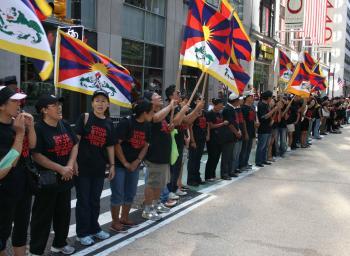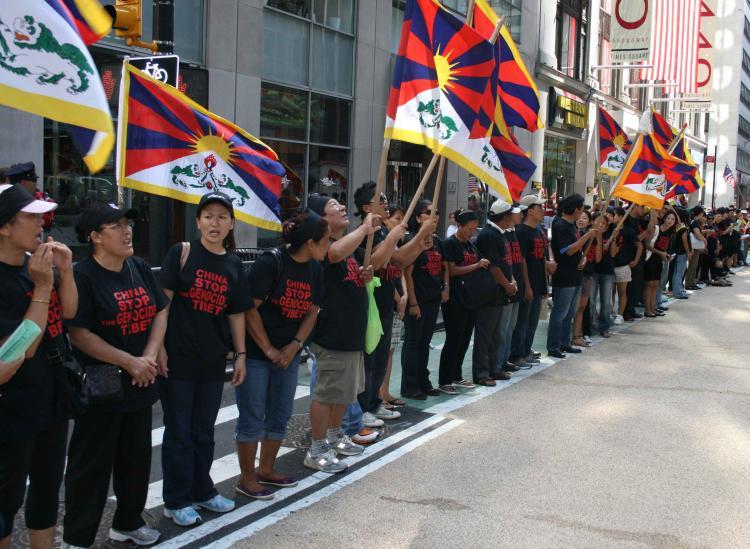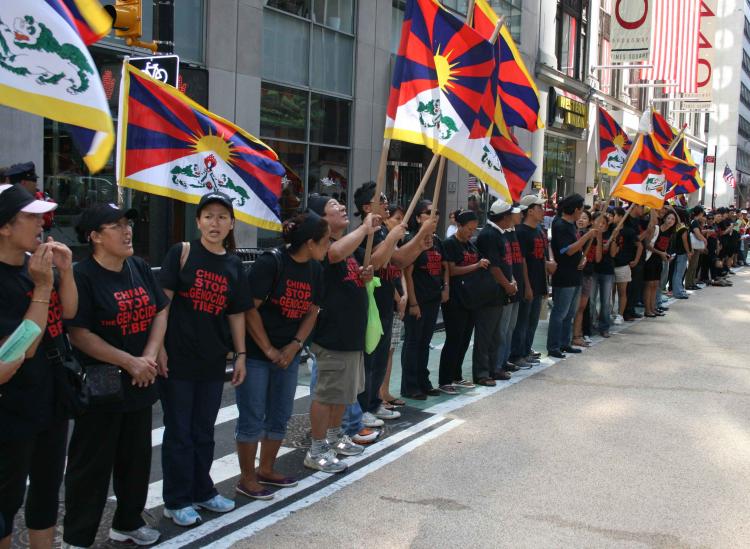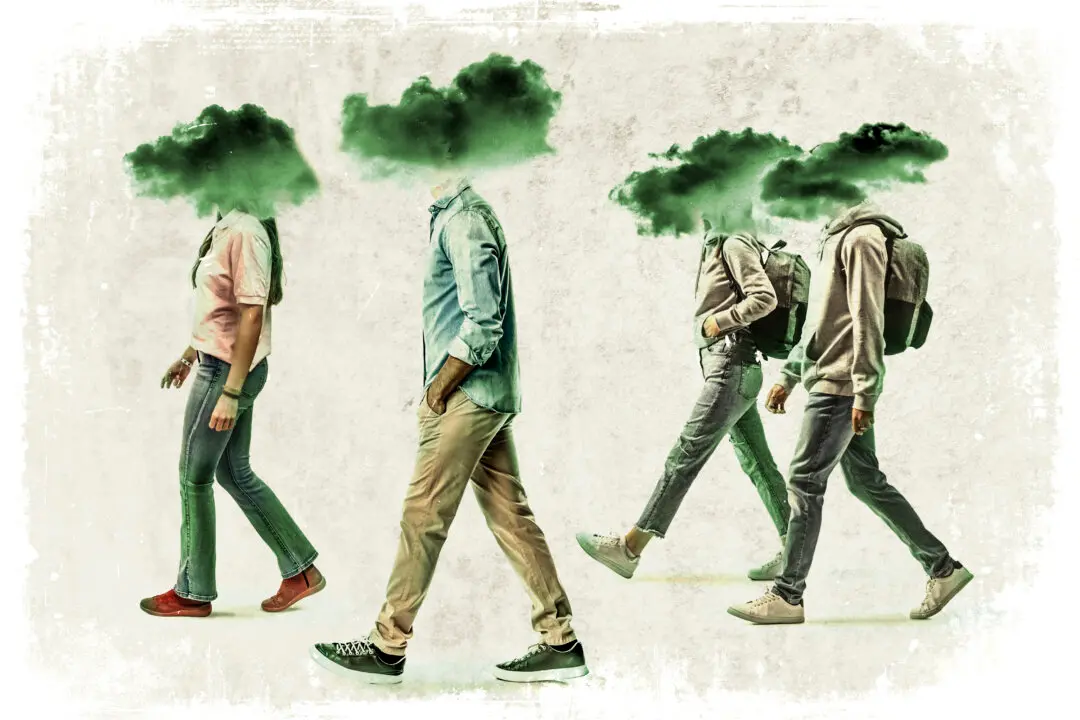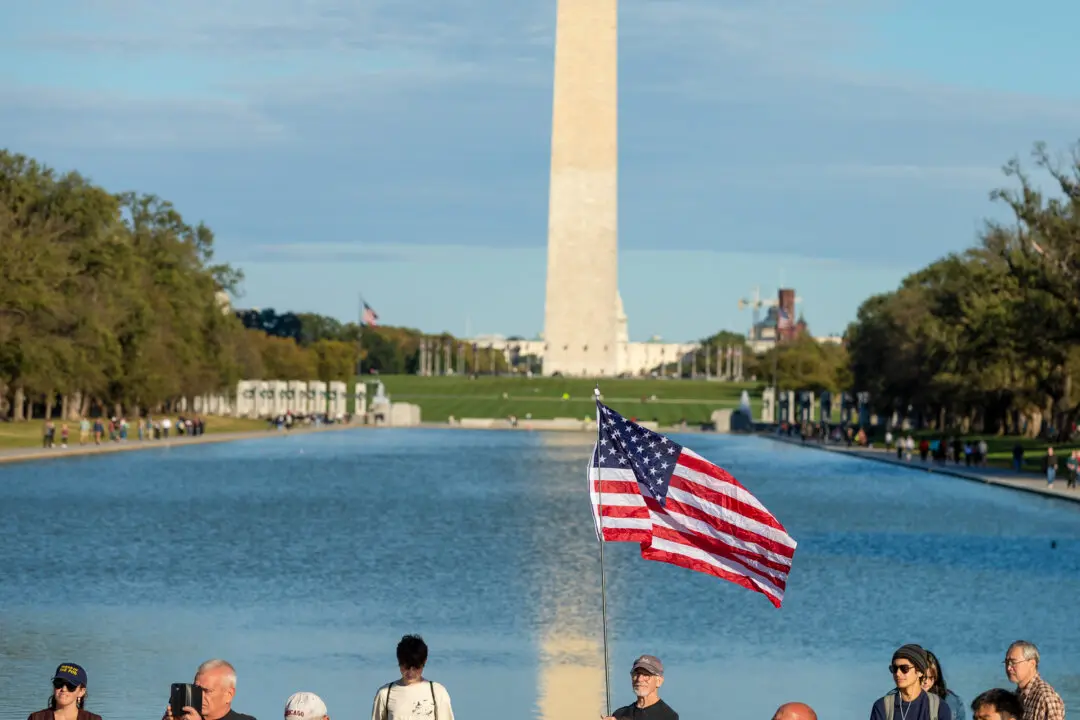NEW YORK—Thousands of Tibetans and supporters lined Broadway from Times Square to Harold Square on Saturday, one day before the Beijing Olympics closing ceremony.
The last two weeks have not only seen the world’s top athletes compete in Beijing, they’ve seen protests around the world over Beijing’s horrendous human rights record.
Thousands of Tibetans and supporters have held a variety of large scale events in New York City, including a bicycle rally and speeches from protesters arrested during the Games, to raise awareness about the situation in Tibet—where activists say 1.5 million Tibetans have been killed since the Chinese Communist Party invaded the region in 1959.
“Right now in Tibet, Buddhist monasteries have been sealed off; Tibetans are being denied of their basic human rights; international medial remain barred from Tibet,” reads a statement from the Tibetan group. Activists say approximately 5,000 Tibetans are being kept in prisons to crush any sign of dissent during the Olympics
“The Olympics may be over tomorrow but the torture and killing in Tibet is still happening,” said Tenzin Choeden, 28, a New York resident and Tibetan whose parents like so many other Tibetans fled Tibet to Nepal to escape persecution for their religion and ethnicity.
Choeden is part of a new generation of Tibetans who have grown up outside of Tibet and yearn for freedom in their homeland.
Pointing to the hundreds of young Tibetans behind her, Cheoden said, “Most of these young Tibetans have actually gone back to Tibet to visit their relatives and they’ve seen how bad the situation is.”
A middle-aged Tibetan woman named Rinzin said that she was just 2 when her family fled Tibet for India. Now she wants the world to see the real China, as it exists under the Chinese Communist Party.
“Before the Olympics the Chinese were known for Chinese food but after the Olympics they are known for being fake,” said Rinzin, referring to, among other things, the Chinese government’s blatant deception regarding the age of gold medal-winning gymnast He Kexin.
As for what things will be like in China after the Olympics, Peter Brown—one of the few Western faces at Saturday’s activity—remained optimistic for a new and more democratic China. He theorizes that much of the nationalist pride among Chinese people will deflate after the Olympics.
“During the Games, the Chinese nationalism has sort of taken over but once the games are over there’s going to be this anti-climatic moment,” said Brown, who speaks and reads Chinese and travels between the United States and India, where there are many Tibetan refugees.
“The Germans [under the Nazis] had the games in 1936 and in 15 years they were gone, and the Russians [under communism] had them in 1980 and in 10 years they were gone, and I kind of have this almost superstitious hope that maybe the same sort of phenomenon is going to happen in China,” said Brown.
